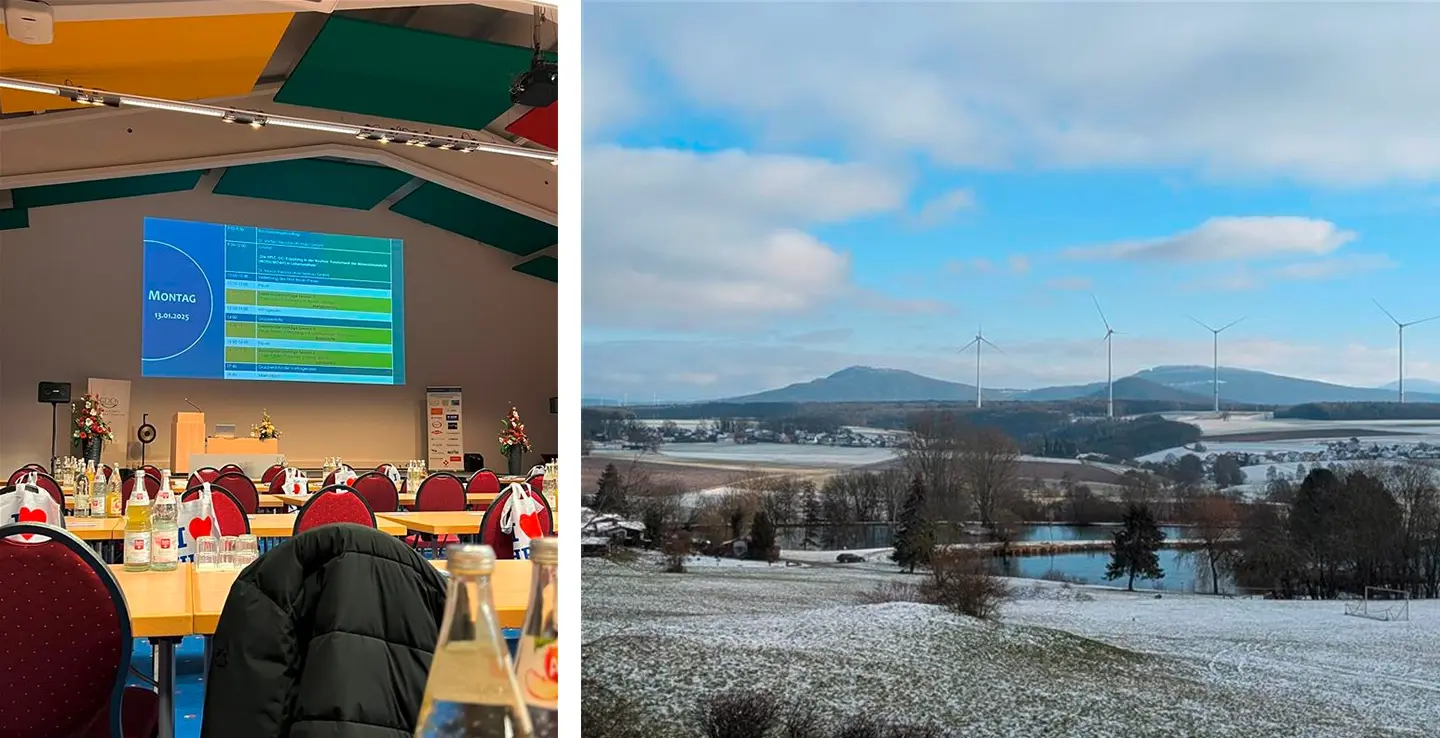KNAUER at the 35th PhD meeting of the German separation scientists
Every year in January, several working groups with a research focus on chromatography and related topics gather in the beautiful and remote hotel park in Hohenroda. It was personally my first time attending this meeting, but KNAUER has sponsored and participated in this successful seminar series already for several years.
As Prof. Dr. Werner Engewald noted in his lecture on the history of the seminar, it is “a child of the German Reunification”. It was initiated by him, a scientist from the former GDR, and his colleague Prof. Dr. Heinz Engelhardt from the western part of Germany in 1991. The aim of the seminar was to foster a lively exchange among the newly reunited young scientists in the field. Since then, the tradition of the meeting has continued, mostly in Hohenroda.
Chromatography separates molecules and unites people.
A.A. Zhukhovitzkij
What is special about this seminar series
The seminar is organized and hosted by the PhD students of a working group from the AK Separation Science of the GDCh division Analytical Chemistry. The responsibility to organize the meeting alternates between the groups at different universities every five years. The PhD students are also the chairs of the different sessions, and many of them get the opportunity to present their work. The audience consists of their peers from across Germany, as well as interested guests from industries. For us, it was a pleasure to follow the valuable presentations and to engage in discussions with the PhD students. The hotel park also offers many opportunities for casual meetings, whether at the cozy bar, the bowling alley or during a fun round of minigolf. We also heard that some “heated” discussions take place even in the sauna.

Fig. 1–2 Impressions from Hohenroda: a warm welcome in the frosty countryside of Hessen.
Hot Topics at the PhD seminar
A total of 24 talks were presented by the PhD students, with a surprising number of five presentations focusing on HILIC applications. They ranged from the “extension of the polarity range of water analysis”, presented in a very illustrative talk by Joana Flottmann (Schmidt group, Essen), to metabolomic studies as well as an elegant two-dimensional separation using two columns in the second dimension, presented by Katharina Wetzel (Schmitz group, Essen).
For detection, many of the PhD students utilize different mass spectrometers (MS). Interestingly, several opted for the cost-effective alternative ion mobility spectroscopy (IMS), e.g. for the fingerprinting of metabolites or volatile compounds in coffee. The IMS detectors were often developed by the students themselves or by their research groups and they may become more relevant as a detector for liquid chromatography (LC) in general. While IMS offers a lower mass resolution than MS, it provides additional separation e.g. of isomers depending on their shape. At the same time, the instrument requires a less expensive infrastructure, as it operates under ambient pressure. The award for the best talk was also assigned to a presentation on IMS. Tim Kobelt from the Zimmermann Group in Hannover successfully presented his work on the development of a dual IMS device for the detection of pathogens after pyrolysis and gas chromatography (GC) separation.
Some exotic LC approaches were presented at the PhD seminar as well. Two students from the Morlock group presented high-performance thin-layer chromatography (HPTLC) as a non-target method for detecting mutagenic and toxic compounds in food or materials in contact with food. Maximilian Blaha (Belder group, Leipzig) and Jana Thiessen (Teutenberg group, Duisburg) discussed the development and application of Raman spectrometers as detectors in HPLC and SEC.
All in all, it was a very informative conference, with all contributions being well presented and inspiring. Dear PhD students, it was a pleasure to meet you. Keep on separating and see you next year in Hohenroda!
For further information on this topic, please contact our author: pruefer@knauer.net; huhmann@knauer.net

